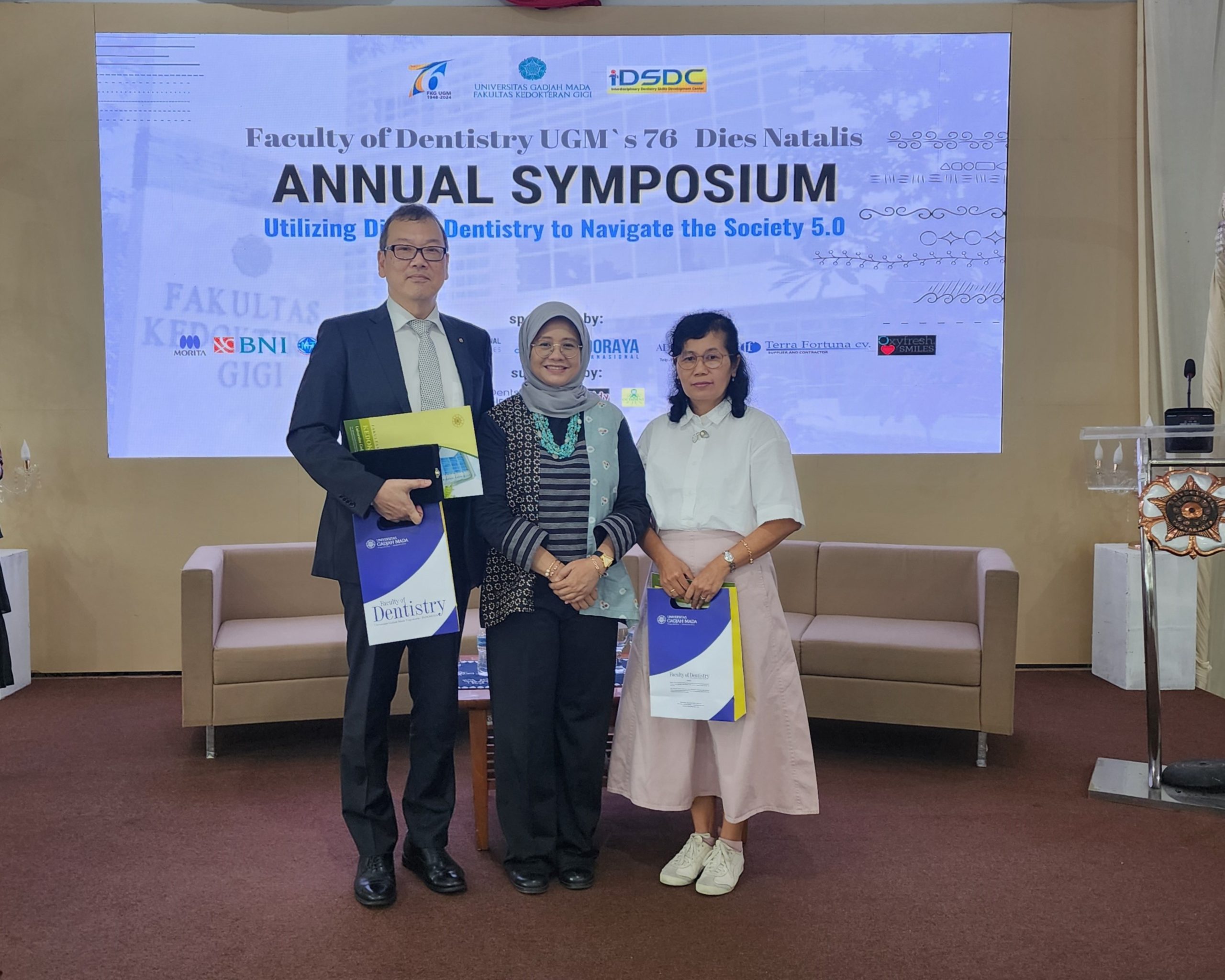Practice in dentistry has consequences for the transmission of infection which is quite high, some studies mention infections that occur in dental practices more than 30%. In addition to patients, dental health service personnel are one of the parties at high risk of infection despite using PPE and applying the principles of CFCD.
Infections in dental practice are a serious problem and should not be taken lightly. Knowing the causes and ways to prevent infections that occur is a crucial step to protect patients and dental health workers from transmission of infection.
Faculty of Dentistry UGM held an Annual Symposium seminar: Utilizing Digital Dentistry to Navigate the Society 5.0 in the framework of the 76th Anniversary of the Faculty. In this event, the Faculty invited a Special Lecture from Morita Japan, Prof. Shigemitsu Murai. On this occasion Prof. Shigemitsu together with drg. Heni Susilowati, M.Kes., Ph.D. as the moderator delivered the material entitled Zero Concept: Infection Control With Latest Technology.
At the event, Prof. Shigemitsu said that the zero concept is an effort to prevent dental and oral diseases before they occur, one important aspect of this concept is infection prevention. The zero concept explains several efforts that can prevent the transmission of infection such as: sterilizing and disinfecting dental equipment, using personal protective equipment for dentists when in contact with patients, and maintaining the cleanliness of the practice environment.
The event was interactive during the question and answer session. At the end of the session, Prof. Shigemitsu expressed his hope that the Morita company can immediately implement this zero concept in dental health practices in Indonesia.
This event is a form of concern for patients and dental health workers in preventing infection, with the delivery of this material it is hoped that the UGM Faculty of Dentistry will be able to contribute to maintaining and improving the quality of life of patients and dental health workers and implementing the Sustainable Development Goals (SDGs) program pillars 3 and 4, namely Good Health and Quality Education.
Author: Diva Luthfiana Lathifah

